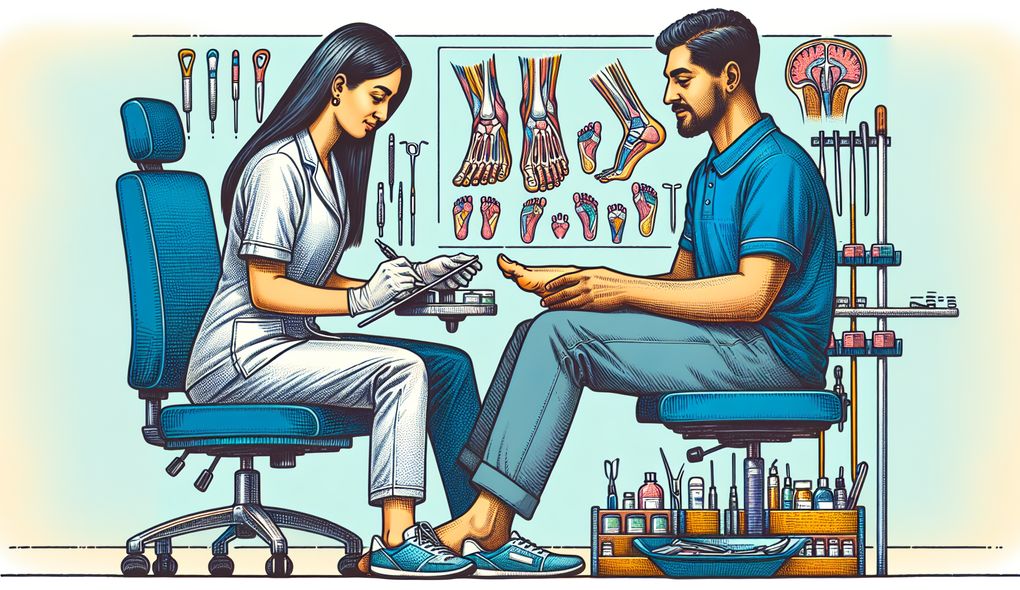How do you prioritize and manage your caseload effectively?
SENIOR LEVEL

Sample answer to the question:
To prioritize and manage my caseload effectively, I use a systematic approach. First, I assess the urgency of each case and prioritize based on the severity of the condition and the patient's needs. This helps me ensure that critical cases receive immediate attention. Next, I plan my schedule in a way that allows me to allocate sufficient time to each patient while considering the complexity of their condition. I also make sure to communicate with my patients, keeping them informed about their treatment plans and any necessary adjustments to their appointments. Additionally, I utilize electronic medical records to stay organized and track the progress of each case. Overall, my goal is to provide timely and effective care to all my patients.
Here is a more solid answer:
Prioritizing and managing my caseload effectively requires a strategic approach. Firstly, I assess the urgency and severity of each case, taking into account the patient's needs and medical history. This helps me determine the order in which patients should be seen. Additionally, I consider the complexity of each condition and allocate sufficient time for thorough examinations and discussions with patients. To ensure effective communication, I actively listen to my patients, address their concerns, and provide clear explanations of their treatment plans. I also collaborate with other healthcare professionals to coordinate care and avoid any overlaps or delays. As a podiatrist committed to continuous learning, I stay updated with the latest advancements in podiatric medicine through conferences, workshops, and professional literature. This allows me to provide evidence-based care and offer the best treatment options to my patients.
Why is this a more solid answer?
The solid answer expands on the basic answer by providing a more strategic and detailed approach to prioritizing and managing a caseload. It addresses all the evaluation areas mentioned in the job description such as the ability to work independently and manage a caseload, strong communication and interpersonal skills, and commitment to continuous learning and professional development. However, it can still be further improved by adding specific examples or experiences.
An example of a exceptional answer:
Effectively prioritizing and managing my caseload is crucial to providing exceptional care. I begin by conducting a thorough assessment of each patient's condition, taking into account their medical history, severity of the condition, and individual needs. I then create a prioritization matrix that considers urgency, complexity, and patient preferences. This matrix helps me allocate time and resources appropriately. To ensure smooth workflow, I establish a standardized process for triaging patients, scheduling appointments, and communicating with them. For instance, I use a secure online portal where patients can access their medical information, leave messages, and schedule follow-up appointments. This not only improves efficiency but also enhances the patient experience. Additionally, I actively collaborate with other healthcare professionals, attending multidisciplinary meetings and participating in case conferences to discuss complex cases and coordinate care. By staying up-to-date with the latest research and attending educational conferences, I continuously enhance my knowledge and skills to provide evidence-based care. Continual professional development also includes seeking feedback from patients and colleagues to identify areas for improvement and implementing necessary changes. In summary, I prioritize and manage my caseload effectively by leveraging technology, utilizing a prioritization matrix, fostering collaborative relationships, and embracing lifelong learning.
Why is this an exceptional answer?
The exceptional answer goes above and beyond by providing a comprehensive and strategic approach to prioritizing and managing a caseload. It includes specific examples and experiences, demonstrates the candidate's ability to work independently and manage a caseload effectively, showcases strong communication and interpersonal skills, and highlights their commitment to continuous learning and professional development. It also incorporates the use of technology and collaborative practices to enhance efficiency and patient care. This answer encompasses all the evaluation areas mentioned in the job description.
How to prepare for this question:
- Familiarize yourself with different triaging methods and prioritization techniques used in healthcare settings.
- Reflect on past experiences where you effectively managed a caseload. Think about the strategies, tools, and communication methods you utilized.
- Stay updated with the latest advancements in podiatric medicine by attending conferences, workshops, and reading professional literature.
- Practice active listening and effective communication skills, as they are crucial for managing a caseload and interacting with patients and colleagues.
- Consider incorporating technology solutions into your practice, such as electronic medical records or secure online portals, to improve efficiency and patient experience.
What are interviewers evaluating with this question?
- Ability to work independently and manage a patient caseload
- Strong communication and interpersonal skills
- Commitment to continuous learning and professional development

